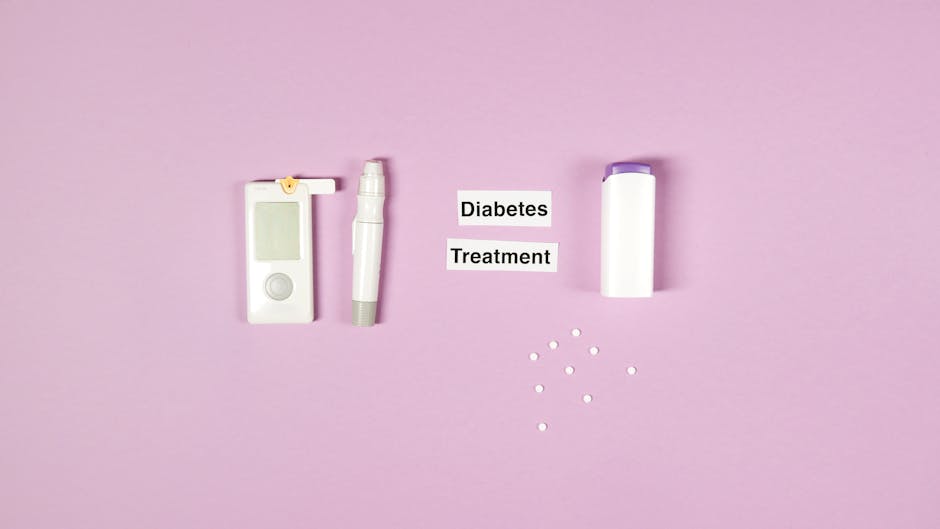Type 1 Diabetes Cure: The Latest Research and Hope for a Future Without Insulin Injections
Type 1 diabetes, an autoimmune disease where the body attacks its own insulin-producing cells in the pancreas, has been a significant health challenge for millions worldwide. The daily burden of managing blood sugar levels through insulin injections or pump therapy is a reality for those living with this condition. However, the relentless pursuit of a type 1 diabetes cure is fueling groundbreaking research and offering a glimmer of hope for a future free from the constraints of this chronic illness.
Understanding Type 1 Diabetes: A Complex Autoimmune Disease
Before delving into the potential cures, it’s crucial to understand the complexities of type 1 diabetes. The autoimmune response, where the body’s immune system mistakenly attacks the beta cells in the pancreas, leads to a deficiency in insulin production. Insulin, a hormone vital for regulating blood sugar levels, becomes scarce or absent, resulting in elevated blood glucose levels. This hyperglycemia, if left unmanaged, can lead to serious long-term complications, including cardiovascular disease, kidney disease, nerve damage (neuropathy), and eye damage (retinopathy).
Current treatment focuses on managing blood sugar levels through insulin therapy, a life-long commitment. While effective in preventing acute complications, it doesn’t address the root cause of the disease. This is where the quest for a cure comes into play.
Promising Avenues of Research Towards a Type 1 Diabetes Cure
The search for a type 1 diabetes cure is a multi-pronged approach, encompassing various strategies:
1. Immunotherapy: Targeting the Autoimmune Response
Immunotherapy aims to modulate the immune system, preventing it from attacking the insulin-producing beta cells. Several approaches are being explored:
- Immune tolerance induction: This strategy involves retraining the immune system to recognize beta cells as “self” and cease the attack. This is a complex process, but clinical trials are showing promising results with certain immune-modulating drugs.
- Anti-inflammatory therapies: Reducing inflammation in the pancreas may help protect beta cells from further damage. Research into specific anti-inflammatory drugs is ongoing.
- Monoclonal antibodies: These targeted therapies can specifically neutralize autoantibodies that attack beta cells, thus preventing further destruction.
2. Stem Cell Therapy: Regenerating Beta Cells
Stem cell therapy holds immense potential for regenerating damaged or destroyed beta cells. Researchers are investigating different types of stem cells, including embryonic stem cells and induced pluripotent stem cells (iPSCs), to differentiate them into insulin-producing cells that can be transplanted into the pancreas.
Challenges include ensuring the transplanted cells are not rejected by the immune system and achieving sufficient engraftment (survival and function of the transplanted cells) to restore insulin production.
3. Gene Therapy: Correcting Genetic Defects
While the exact genetic causes of type 1 diabetes are complex and not fully understood, gene therapy offers the possibility of correcting specific genetic defects that may contribute to the autoimmune response. Gene editing technologies like CRISPR-Cas9 are being investigated to potentially modify genes involved in immune regulation.
This is a relatively newer area of research, with significant challenges regarding safety and efficiency, but the potential to prevent the onset of type 1 diabetes or even reverse the damage is substantial.
4. Pancreatic Islet Transplantation: Replacing Damaged Cells
Pancreatic islet transplantation involves transplanting healthy insulin-producing cells (islets of Langerhans) from a donor pancreas into the recipient. This procedure can effectively restore insulin production, but it faces challenges like the limited availability of donor organs and the risk of immune rejection.
Research focuses on improving islet isolation techniques, developing strategies to enhance engraftment, and creating immune-protective microenvironments to reduce the risk of rejection.
5. Artificial Pancreas: A Technological Approach
While not a cure in the strictest sense, the artificial pancreas, a closed-loop system combining a glucose sensor, insulin pump, and algorithm, offers a significant improvement in blood sugar control. This technology continuously monitors glucose levels and automatically adjusts insulin delivery, reducing the burden of manual management.
Further advancements are focusing on enhancing the accuracy and reliability of glucose sensors and improving the algorithms for more precise insulin delivery.
Challenges and Ethical Considerations
The path to a type 1 diabetes cure is fraught with challenges. These include:
- Complex immune system: Understanding and manipulating the immune system is incredibly intricate, and unexpected side effects can occur.
- Genetic heterogeneity: Type 1 diabetes is not a single disease, and various genetic factors contribute to its development, making it challenging to develop a one-size-fits-all cure.
- Cost and accessibility: Many of the promising therapies are expensive and may not be accessible to all who need them.
<liImmune rejection: Transplant procedures face the hurdle of immune rejection, requiring lifelong immunosuppressive drugs, which carry their own risks.
Ethical considerations also play a crucial role. The use of embryonic stem cells raises ethical concerns for some, and ensuring equitable access to any future cure is vital.
Hope for the Future
Despite the challenges, the progress in type 1 diabetes research is inspiring. The combined efforts of scientists, researchers, and clinicians are bringing us closer to a world where type 1 diabetes is no longer a life-altering disease. The various therapeutic approaches discussed above show significant promise, and ongoing clinical trials are providing valuable data to guide the development of effective and safe cures. While a complete cure may still be some years away, the future is undoubtedly brighter for individuals and families affected by type 1 diabetes.
Staying informed about the latest research developments and participating in clinical trials, if appropriate, are essential steps for those living with type 1 diabetes and those seeking to contribute to the quest for a cure.
The journey towards a type 1 diabetes cure is a marathon, not a sprint, but with continued dedication and innovation, the goal of a life free from the burden of this disease is within reach.

